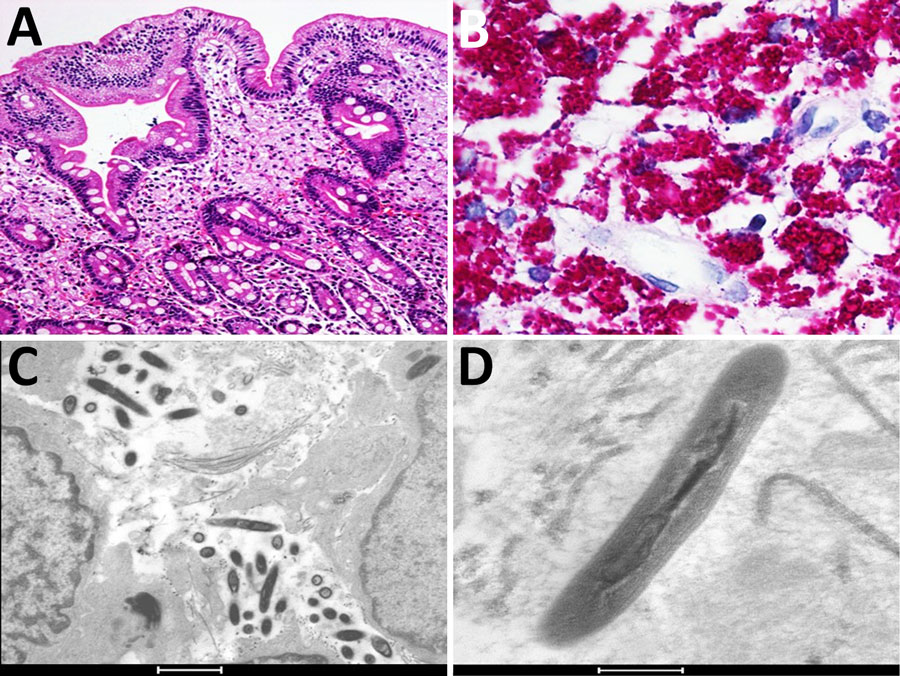Disclaimer: Early release articles are not considered as final versions. Any changes will be reflected in the online version in the month the article is officially released.
Tropheryma whipplei Infections, Mexico, 2019–2021
Jesús Delgado-de la Mora
1
, Peter Grube-Pagola
1, Christopher D. Paddock, Marlene DeLeon-Carnes, Alvaro C. Laga, Isaac H. Solomon, José María Remes-Troche, Jesús Javier Baquera-Heredia, Gabriel Quintero-Bustos, Juan Carlos León-Contreras, Arturo Ángeles-Ángeles, and Braulio Martínez-Benítez
Author affiliation: Weill-Cornell Medicine, New York, New York, USA (J. Delgado-de la Mora); Instituto de Investigaciones Médico Biológicas de la Universidad Veracruzana, Veracruz, Mexico (P. Grube-Pagola, J.M. Remes-Troche); Centers for Disease Control and Prevention, Atlanta, Georgia, USA (C.D. Paddock, M. DeLeon-Carnes); Brigham and Women’s Hospital, Boston, Massachusetts, USA (A.C. Laga, I.H. Solomon); Centro Médico ABC, Mexico City, Mexico (J.J. Baquera-Heredia); Laboratorio Flemming, Morelos, Mexico (G. Quintero-Bustos); Instituto Nacional de Ciencias Médicas y Nutrición Salvador Zubirán, Mexico City (J.C. León-Contreras, A. Ángeles-Ángeles, B. Martínez-Benítez).
Main Article
Figure 2

Figure 2. Microscopic and immunohistochemical examination of tissue samples from the ileum in a a 45-year-old man with Tropheryma whipplei infection, Mexico, 2021. A, B) Hematoxylin and eosin–stained ileum tissue. Microscopic examination showed abundant macrophages in the lamina propria with foamy cytoplasm (A; original magnification ×4); and intracytoplasmic inclusions that were intensely PAS-positive (B; original magnification ×40). C, D) Electron microscopy showing rod-shaped T. whipplei in the lamina propria of ileum (C; scale bar = 1 μm), and trilaminar plasma membranes in macrophages (D; scale bar = 200 nm).
Main Article
Page created: March 10, 2025
Page updated: April 22, 2025
Page reviewed: April 22, 2025
The conclusions, findings, and opinions expressed by authors contributing to this journal do not necessarily reflect the official position of the U.S. Department of Health and Human Services, the Public Health Service, the Centers for Disease Control and Prevention, or the authors' affiliated institutions. Use of trade names is for identification only and does not imply endorsement by any of the groups named above.
